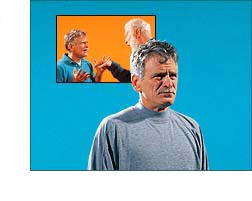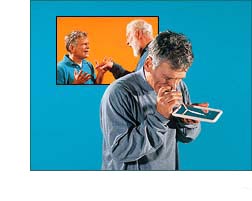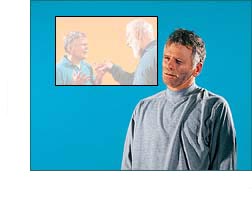People have used drugs for as long as they have tried to ease pain and avoid problems. Since the early 1960s, however, drugs have been in very widespread use. Before that time they were rare. A worldwide spread of drugs occurred during that decade, and a large percentage of people became drug-takers.
By drugs (to mention a few) are meant tranquilizers, opium, cocaine, marijuana, peyote, amphetamines and the psychiatrist’s gifts to man, LSD and angel dust, which are the worst. Any medical drugs are included. Drugs are drugs. There are thousands of trade names and slang terms for these drugs. Alcohol is also classified as a drug.
Drugs are supposed to do wonderful things but all they really do is ruin the person.
Drug problems do not end when a person stops taking drugs. The accumulated effects of drug-taking can leave one severely impaired, both physically and mentally. Even someone off drugs for years still has “blank periods.” Drugs can injure a person’s ability to concentrate, to work, to learn – in short, they can shatter a life.
Yet though the dangers and liabilities of drugs are blatantly obvious and increasingly well documented, people continue to take them.
Why?
When a person is depressed or in pain, and where he finds no physical relief from treatment, he will eventually discover for himself that drugs remove his symptoms.
This is also true for pains which are “psychosomatic.” The term “psychosomatic” means the mind making the body ill or illnesses caused through the mind. “Psycho” refers to “mind” and “soma” refers to “body.”
In almost all cases of psychosomatic pain, illness or discomfort the person has sought some cure for the upset.
When he at last finds that only drugs give him relief, he will surrender to them and become dependent upon them, often to the point of addiction.
Years before, had there been any other way out, most people would have taken it. But when they are told there is no cure, that their pains are “imaginary,” life tends to become insupportable. They then can become chronic drug-takers and are in danger of addiction.
The time required to make an addict varies, of course. The complaint itself may only be “sadness” or “weariness.” The ability to face life, in any case, is reduced.
Any substance that brings relief or makes life less a burden physically or mentally will then be welcome.
In an unsettled and insecure environment, psychosomatic illness is very widespread.
So before any government strikes too heavily at spreading drug use, it should recognize that it is a symptom of failed psychotherapy. The social scientist, the psychologist and psychiatrist and health ministers have failed to handle spreading psychosomatic illness.
It is too easy to blame the drug problem on “social unrest” or the “pace of modern society.”
The hard, solid fact is that until now there has been no effective psychotherapy in broad practice. The result is a drug-dependent population.
Drug users have been found to have begun taking drugs because of physical suffering or hopelessness.
The user, driven by pain and environmental hopelessness, continues to take drugs. Though he doesn’t want to be an addict, he doesn’t feel that there is any other way out.
However, with proper treatment, drug dependency can be fully handled.
As soon as he can feel healthier and more competent mentally and physically without drugs than he does on drugs, a person ceases to require drugs.
Drug addiction has been shrugged off by psychiatry as “unimportant” and the social problem of drug-taking has received no attention from psychiatrists – rather the contrary, since they themselves introduced and popularized LSD. And many of them are pushers.
Government agencies have failed markedly to halt the increase in drug-taking and there has been no real or widespread cure.
The liability of the drug user, even after he has ceased to use drugs, is that he “goes blank” at unexpected times, has periods of irresponsibility and tends to sicken easily.
Scientology technology has been able to eradicate the major damage in persons who have been on drugs as well as make further addiction unnecessary and unwanted.
Scientology has no interest in the political or social aspects of the various types of drugs or even drug-taking as such. Drugs, however, pose a growing threat to mental and spiritual advancement – which is the true mission of Scientology.
Thus, Scientology contains an exact technology which not only gets a person painlessly off drugs but handles their physical, mental and spiritual effects and locates and fully resolves the reason underlying a person’s drug-taking. Nothing else can do this with certainty.

When a person can find no solution to a problem, whether the problem be anything from physical suffering to hopelessness. . .

. . . he sooner or later finds that drugs relieve symptoms.

The problem, however, is not gone, but only masked by the drugs. Until the problem itself is effectively resolved, the person will be dependent on drugs or even addicted to them.